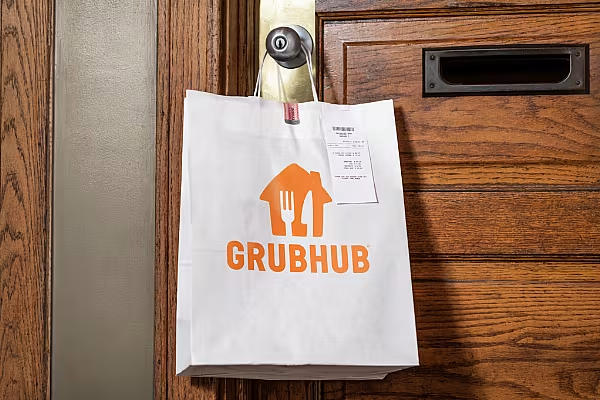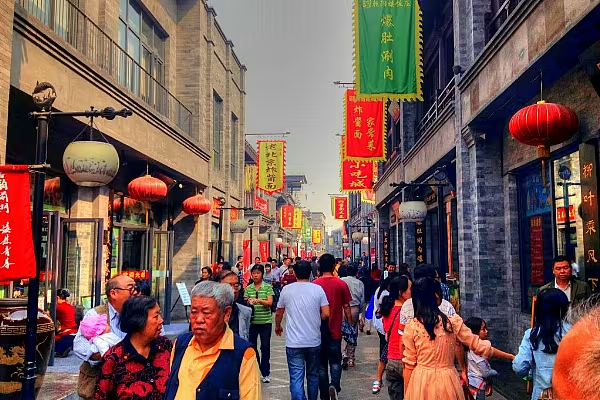Julian Skelly, Senior Vice President, Retail, at digital business transformation consultancy Publicis Sapient, examines how Generative AI has the potential to revolutionise the retail industry.
Today, the debate on Generative AI (or GenAI), powered by large language models like Chat GPT, is widespread. Companies across all industries are looking for ways to leverage this new technology to gain a competitive edge.
For retailers, it promises the ability to quickly harness multiple data sources to generate new content, powering a wide variety of use cases, from creating personalised product recommendations to generating unique marketing content.
While some view artificial intelligence technology as an existential threat, others see it as a true accelerator. Regardless, it's clear that Generative AI is here to stay and retailers need to start to experiment with it.
Here are five ways in which generative AI could reshape retail as we know it.
1. Create Experiences
When it comes to Generative AI, the key to success is in finding the right balance of customer value and implementation complexity. How can retailers quickly create experiences that benefit or delight customers using this technology?
With new innovations coming out every day, Generative AI is redefining our expectations on timeframes, but in the short-term, the focus is likely to be on use cases that are easy to build and quick to deliver value. Once these early experiments are successful, we will see more investment in complex, longer-term use cases.
Read More: Minipreço Deploys 'Chef GPT' To Expand Customer Experience
2. Drive Value Propositions
Today, the focus for both retailers and their customer is value. Shoppers want to be able to see cost-savings at all steps of their buying journey. This could lead grocers to experiment with simple budgeting tools powered by AI – for example, offering the facility to 'Make my basket 20% cheaper' or to optimise a basket for a limited budget.
They will tune into the need to save money, potentially optimising for margin by recommending private-label products.
When looking for internal savings, retailers are likely to start with simple call centre use cases – using natural language processing to scan customer reviews and forums to identify common product issues and their solutions. This information displayed on the product page should reduce call volumes and save money.
Read More: Switzerland's Migros Develops Beverage Using Artificial Intelligence
3. Build Dynamic Promotions
In the medium-term, we are likely to see dynamic demand-drive promotions. Retailers can create opportunities if they connect changes in weather conditions and stock availability to create marketing and promotion opportunities for relevant products.
By connecting the right data sources, Generative AI could be used to quickly create and deploy promotions that are optimised in real-time. Customers might finally see the promise of conversational UI. Large language models (LLM) could parse voice commands into the right set of ingredients for dinner or sort through a large assortment for the perfect outfit for that party at the weekend.
This could revolutionise the way we shop and interact with retailers, making the experience more personalised and convenient.
4. Improve The Supply Chain
There are exciting opportunities for Generative AI to optimise the supply chain. Retailers could use machine learning to analyse historical data and predict product availability and delivery times.
They could then incorporate real-time data, such as weather and traffic, to refine the predictions and combine customer order data to optimise route planning for delivery.
5. Try Before You Buy
Finally, generative AI could be used to create virtual try-on experiences, allowing customers to see how products would look on them before making a purchase. This could help retailers reduce returns and improve customer satisfaction.
Read More: M&S Acquires AI-Based Fashion Marketplace Thread
As Generative AI becomes more pervasive throughout the customer journey, we will see more fundamental changes. In a world where customers tell a device to 'buy the ingredients for a cake!' or 'Help - I am running out of coffee!', retailers will need to rethink the experience. They will need to optimise commerce for machine-assisted shopping and the focus will shift from 'customer experience' to 'AI experience'. Everything will need to be rethought, from discounting to promotions to loyalty.
Generative AI has the potential to revolutionise every aspect of retail, bringing shoppers and retailers closer. The question is not whether there will be an impact, but how fast retailers can build useful features.
Retailers who are quick to adopt and implement Generative AI will have a significant advantage over their competitors – providing customers with more personalised and convenient experiences while also improving their own operations.
ESM COMMENTS: Businesses are already positioning themselves to take advantage of the possibilities of Generative AI – Salesforce recently announced plans to back startups developing 'responsible' Generative AI solutions to the tune of $500 million, while Samsung has announced plans to develop a Generative AI platform that will be available to employees for work-related projects. Elsewhere, Sam Altman, the CEO of Open AI, which owns Chat GPT, said he was confident that "global cooperation" agreements could be reached regarding Generative AI, which could open more business opportunities.
© 2023 European Supermarket Magazine – your source for the latest Technology news. Article by Julian Skelly, Publicis Sapient. Additional comment by Stephen Wynne-Jones, ESM. Click subscribe to sign up to ESM: European Supermarket Magazine.













